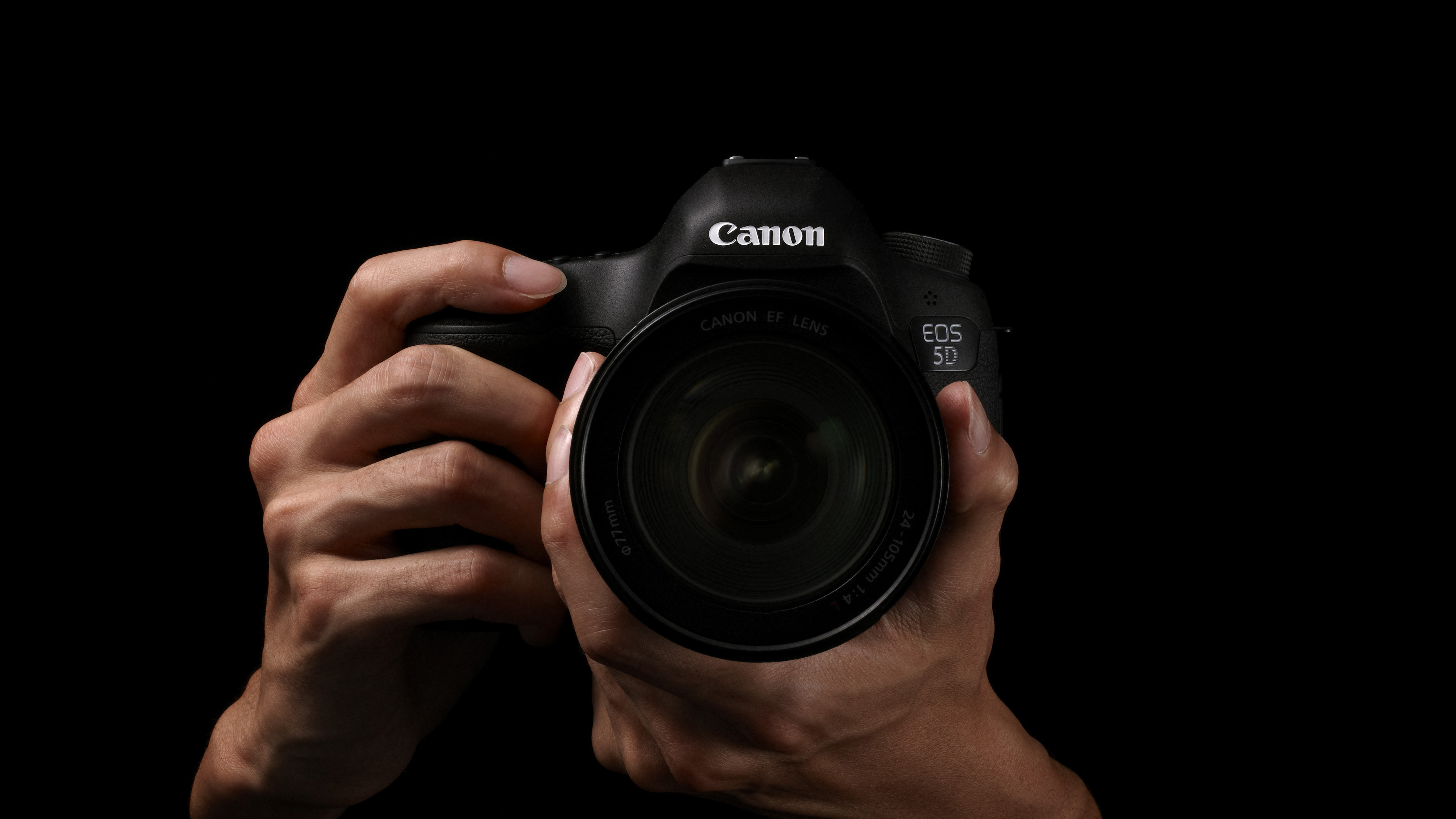Why you can trust TechRadar
Build and handling
- Magnesium alloy and polycarbonate construction
- Dust and weather-sealed
- 950g
According to Canon, the EOS 5D Mark III has better weatherproofing than the Mk II version. This is something that's difficult to test in the short term, but many enthusiasts and pros will be reassured by that knowledge.
The camera is large, but not in the same league as the Canon EOS-1D X, since it lacks the additional portrait orientation grip and controls.
The finger grip is covered in a textured rubber-like coating that helps it feel secure in your grasp, and the contours of the front and rear make it comfortable to hold.

Overall there is a feeling of quality, and the magnesium alloy body doesn't squeak or creak when squeezed tightly.
The body of the Canon EOS 5D Mark III is largely unchanged from the Mark II's, but there are a few key differences. The pentaprism lump on the top, for example, is a little larger and more rounded to accommodate the AF module, which is 2.5x larger than the one in the Canon EOS 5D Mk II.

There's also the live view/video switch on the back of the camera, which is within easy reach of the right thumb. In addition, Canon has added a couple of new buttons. The first of these is to access three creative options: Picture Styles, Multiple Exposure (up to nine images can be combined into one) and the HDR modes.
Another new button is marked Rate, and pressing it in playback mode enables you to rate the image - one press for one star, two for two, and so on. These ratings are logged in the EXIF data and are visible in Adobe Bridge and Photoshop Elements.
We found the Rate feature extremely useful when reviewing images taken during this test, since it makes sitting on the bus or train home from a shoot productive. You may not use it to make your final image selection, but it's useful for working out which are the best images to consider.

Pleasingly, Canon has given the EOS 5D Mark III the same 3.2-inch 1,040,000-dot Clear View II TFT LCD screen as the Canon EOS-1DX.
The gap between the LCD display and its glass cover has been filled with an optical gel, and this helps to keep reflections at bay. We found that the screen provides a sharp, clear view even when shooting outside in bright sunlight.
Given the Canon EOS 5D's reputation as video camera, it's a shame that Canon wasn't bold enough to give the Mark III version an articulating screen.
Autofocus
- 61-point AF, 41 cross-type AF points
- 21 cross-type AF points at f/4
- Dual Pixel CMOS AF for Live View
The Canon EOS 5D Mark III has the same 61-point wide-area autofocus system as the flagship Canon EOS-1D X. This is a big improvement on the Canon EOS 5D Mark II, which has nine user selectable AF points and six assist points, giving a total of 15.
Of these 61 points, 41 are cross-type and five are dual cross-type points, which is good news for accuracy. The customisable AF presets introduced in the Canon EOS-1D X are also available, which Canon claims helps when shooting more challenging subjects.

However, this means that existing Canon EOS 5D Mark II users have a steep learning curve when shooting sport and action scenes.There are six AF Area Selection modes, including Spot AF (Manual Selection), Single-point AF (Manual Selection), AF Point Expansion (Manual Selection), AF Point Expansion (Manual Selection, Surrounding 8 Points), Zone AF (Manual selection of Zone) and 61-Point Automatic Selection AF.
On top of this, the the AI Servo (continuous AF) mode characteristics such as tracking sensitivity, acceleration/deceleration tracking and AF point switching can be adjusted.Helpfully, there are a number of sport-orientated 'Case Studies' or setup arrangements that enable users to select the correct options for the subject. We found that the AF system is fast and accurate. It did a good job of keeping up with skateboarders and BMX riders in subdued light in this test.
Current page: Build, handling and AF
Prev Page Introduction and key features Next Page Performance and image quality